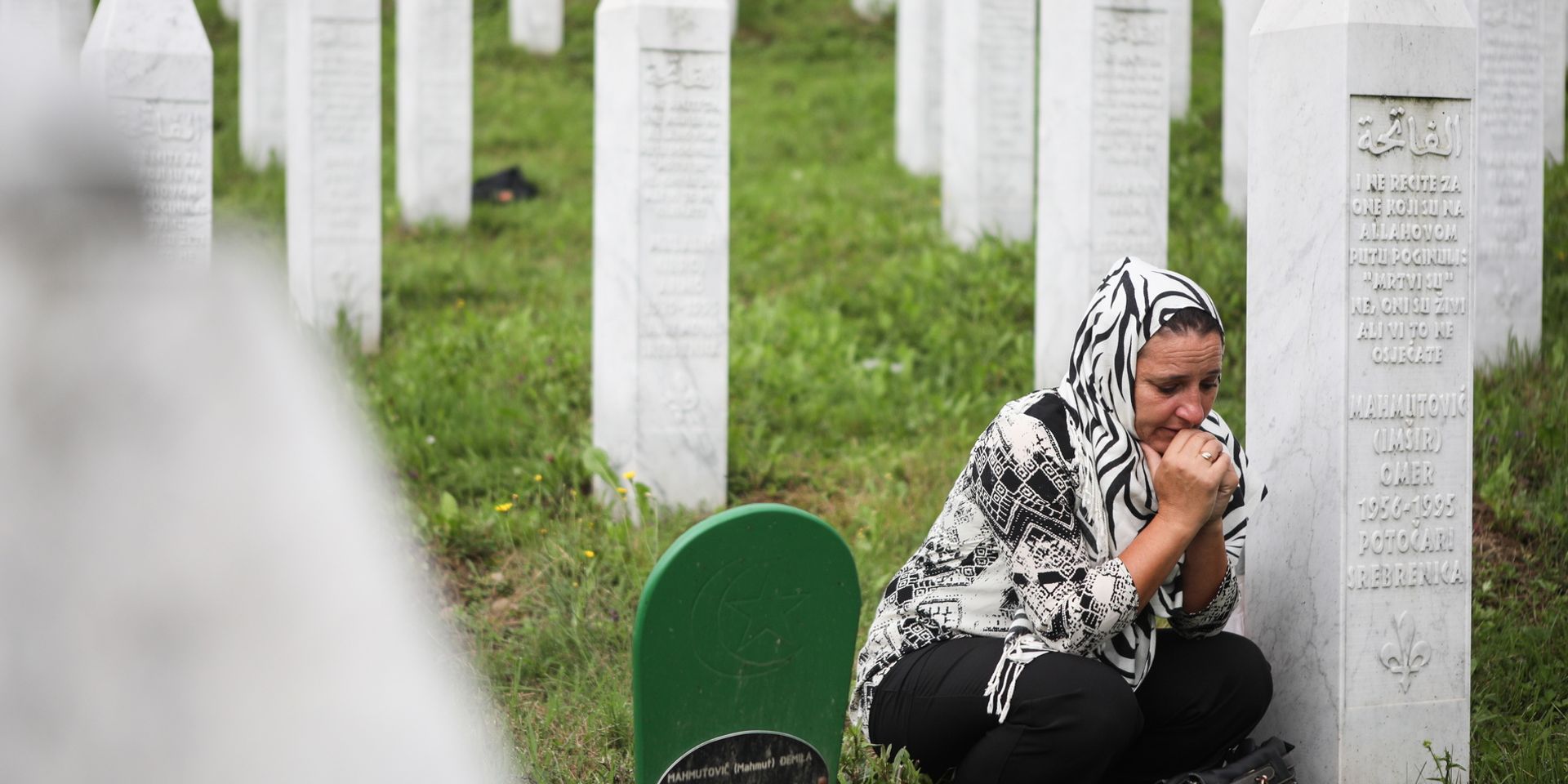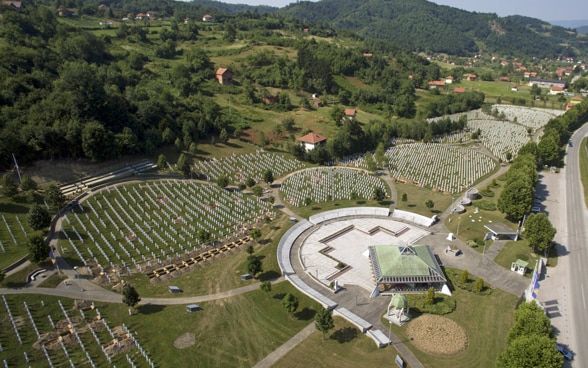Learning from the past
Some 25 years on from the Srebrenica massacre, the question arises of what we have learnt from the past and how such atrocities can be prevented in the future. Examining our history is also important for Swiss domestic and foreign policy going forward. This article by Federal Councillor Ignazio Cassis was published in the NZZ on Saturday, 11 July 2020.

Over 8000 men executed, thousands of women raped and displaced: Srebrenica stands for one of the worst war crimes in Europe since the Second World War. © Keystone
On 11 July 1995 units of the Bosnian Serb army under the command of Ratko Mladić captured the enclave of Srebrenica, which had been designated a 'safe area' under UN protection. In the following days, one of the worst war crimes in Europe since the end of the Second World War was perpetrated. Within a matter of days, the troops executed more than 8,000 men and boys, raped thousands of women and girls and forced more than 25,000 people from their homes. Now, 25 years on, there are questions that still remain unanswered. How was such a terrible outcome even possible? How can the victims of such heinous crimes best be commemorated? And above all, what have we as the international community learnt from this and how can we prevent such atrocities in the future?
Prosecuting crimes as a means of prevention
Dealing with the past is a long and complex process. Even 25 years after the massacre, many questions remain unanswered. Although around 7,000 of the 8,000 men and boys who were killed have been identified, this means that even after such a long time, many families are still waiting for answers about what happened to their loved ones. Identifying the victims does not undo the pain of loss, but it is key to the individual mourning process. Those who have been given no answers cannot come to terms with the past. But it is precisely this coming to terms with our own history that is important if we are to prevent such atrocities from happening again.
In addition to individual mourning, the collective prosecution of the perpetrators by the competent national courts and by the international criminal justice system is extremely important, delivering justice for the victims and enabling a collective recognition of what happened. This is a basic prerequisite for the effective prevention of future war crimes, for lasting peace and, ultimately, international stability. This is why Switzerland is strongly committed to ensuring the independence of the international criminal justice system – in particular the International Criminal Court – is upheld.
The courage to deal in earnest with the past
In addition to questions of justice, a number of other measures such as material reparations and institutional reforms are an essential part of dealing with the past. Although financial compensation and other types of reparation can never truly make up for the harm caused to the victims, they can at least provide some measure of relief and send out a signal. Institutional reforms to security forces, for example, can remove structural risk factors that made the atrocities possible in the first place. Ultimately, however, it is imperative that the international community and the affected society make a genuine effort to explain how the crimes were actually able to happen. A shared account of the past creates the basis for dialogue and reconciliation.
Massacres such as in Srebrenica do not happen overnight. The horrific murders and the expulsion of thousands of Muslims was the bloody climax of a long escalation of violence and conflict. Blame lies on the one hand with the perpetrators, but also with an international community that stood by and watched as a diverse European nation was rent apart. The Srebrenica massacre is thus also a reminder of the international community's shared culpability.

Commitment to a diverse and peaceful Europe
If we want to prevent such massacres in the future, we need an effective multilateral system which prioritises peaceful conflict resolution and which is based on international law. With its humanitarian tradition and good offices, Switzerland is well placed to support this endeavour. This contribution to sustainable peace is of direct interest to Switzerland, especially in a region with which it has such close ties as the Western Balkans. The preparation of a reconciliation commission launched by the government of Kosovo, for example, can count on Switzerland's expert advice. In Bosnia and Herzegovina, too, Switzerland has provided practical help, for example in the identification of missing persons and in psychosocial support for witnesses at war crimes trials. In addition, Switzerland is promoting consensus-building as part of efforts to develop a national strategy for dealing with the past.
Twenty-five years after the massacre in Srebrenica, it is encouraging to look to the Western Balkans region and see that serious crimes can be progressively brought to light and prosecuted. But a long road still lies ahead. This is a process that is also of great importance to us in Switzerland. We have close social and geographical ties with the Western Balkans, indeed around half a million people with roots in the region live among us. It is therefore in the interests of both Swiss domestic and foreign policy to contribute to the stability and development of the region. From development cooperation to civilian and military peacebuilding, Switzerland employs a wide range of instruments for this purpose. We support the efforts of all those who aspire to overcome the horrors of the past and look to the future with hope and confidence. The commemoration of Srebrenica must not be misused to evoke the discord of the past, but rather should herald a commitment to a free, diverse and peaceful Europe and to shared values.
Article published in the NZZ on Saturday, 11 June 2020. More at www.nzz.ch
